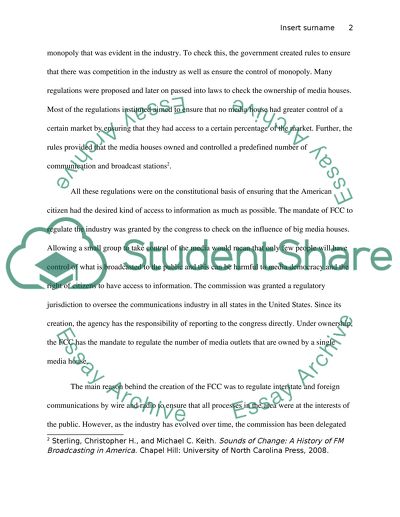Cite this document
(“Media ownership reform Research Paper Example | Topics and Well Written Essays - 3000 words”, n.d.)
Media ownership reform Research Paper Example | Topics and Well Written Essays - 3000 words. Retrieved from https://studentshare.org/journalism-communication/1402792-media-ownership-reform
Media ownership reform Research Paper Example | Topics and Well Written Essays - 3000 words. Retrieved from https://studentshare.org/journalism-communication/1402792-media-ownership-reform
(Media Ownership Reform Research Paper Example | Topics and Well Written Essays - 3000 Words)
Media Ownership Reform Research Paper Example | Topics and Well Written Essays - 3000 Words. https://studentshare.org/journalism-communication/1402792-media-ownership-reform.
Media Ownership Reform Research Paper Example | Topics and Well Written Essays - 3000 Words. https://studentshare.org/journalism-communication/1402792-media-ownership-reform.
“Media Ownership Reform Research Paper Example | Topics and Well Written Essays - 3000 Words”, n.d. https://studentshare.org/journalism-communication/1402792-media-ownership-reform.


